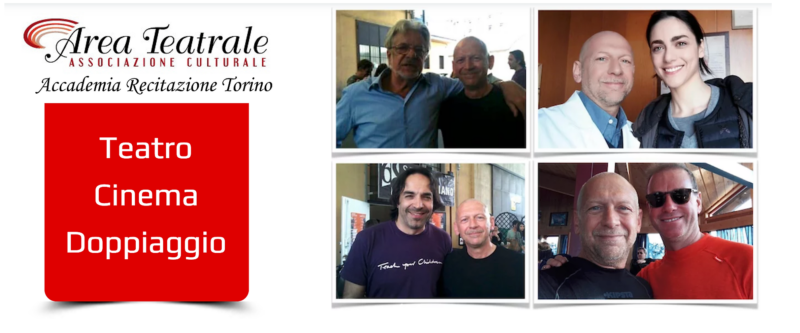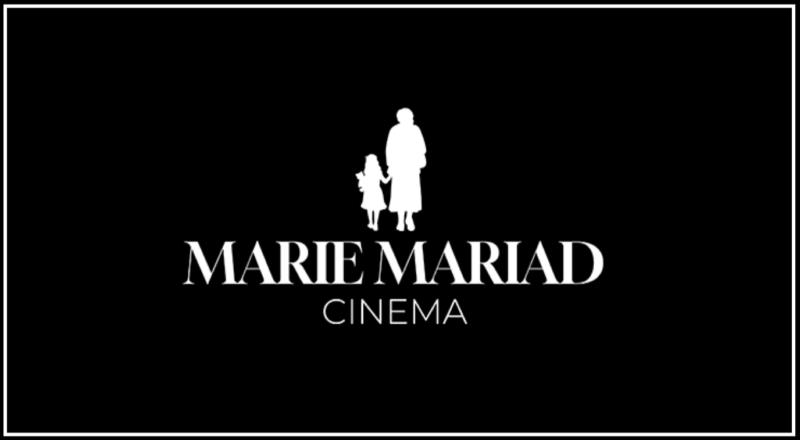Antonio Ferrero is the founder of the “Associazione Culturale Area Teatrale – Accademia Recitazione Torino” -. He is a partner of Marie Mariad Cinéma, a film production company. He is an acting teacher and voice educator, director, actor, author and dubber. He is registered in the Register of Publicist Journalists. He is an impressionist painter.
He studied theater acting for many years; he participates in the internship of the Russian director Anton Milenin, a “direct” student of Stanislavskij and Vassilyev, in Skorik’s course. He is an expert in the Meisner Technique and Orazio Costa’s method. He studied film dubbing and was part of the acting workshop held by Giancarlo Giannini. He attended the course “The art of illuminating the stage in the theatrical show”, by Franco Campioni, an expert in “Luministics”.
Actor in the program “Stasera CasaMika”, directed by Fabio Calvi, Raidue. He was the coroner in the fiction “Non uccidere 2”, with Miriam Leone, Raidue. He was the priest in the series “Fuoriclasse 2”, broadcast on Raiuno, directed by director Riccardo Donna, with Luciana Littizzetto. He played Raphael, Gualtiero’s father, in the Raiuno fiction “Altri Tempi” by director Marco Turco, with Vittoria Puccini and Stefania Rocca. He is one of the protagonists of the Telecom Italia sitcom “Navigare Insieme”. He collaborated with BRW Filmland for the realization of the commercial for “Esselunga” by Armando Testa, directed by Antony Marc Hoffman. He shot the video clip “Sing-hiozzo” for the Negramaro, directed by the director Paolo Ameli, already author of “Rosso Fango” – the short film with which he won the Los Angeles International Short Film Festival, the Golden Globe and the David by Donatello -. He made two institutional films as a leading actor for IVECO. He collaborated with Mediaset and lent his voice by dubbing the boss in the film “Sotto lo stesso cielo”, by Mary Griggion. He is the voiceover of the multimedia project “Connecting wine“. He is the father of the protagonist in the short film “Alfredo” of the Holden school in Turin.
He was the creator, conductor and interpreter of the radio broadcasts “Dico bene” and “Sipario Teatrale” on Radio Italia Uno. He is the author, director and protagonist of the brilliant comedy “Che Dio ce la mandi buona!”. As is the author, director and protagonist of the work entitled “Parlami di tuo padre”: a drama that recounts the last days of life of Patryk Nowak, an internationally renowned jazz drummer suffering from alcoholism and the conflict between his young partner and the homosexual daughter he had with his previous wife. He is also the author and director of the brilliant comedies “Goda di sotto – un paesino d’Italia”, “Teatro e follia” and “L’arte in soffitta”. In addition, he directed the theatrical comedies “Telefoni & Peccati” – a work taken from the film “Perfetti sconosciuti” -, “Toc Toc” – a hilarious comedy by Laurent Baffie -, then “Il nipote buddista”, “Liberi tutti” and ” La parola ai giurati“: work taken from the film of the same name (12 Angry Men) of 1957 directed by Sidney Lumet.
He is a voice educator (voice coach):
a professional figure that has very ancient origins. Already in ancient Greece there was the phonaskos which taught speakers the right diction and the correct use of the voice. Today the figure that takes the place of the Greek one is the voice coach (or trainer) who is widespread and sought after in the United States, England and many other European countries.
Most everyone knows what elocution is and what a elocution teacher does, but few would know how to find one, except after some painstaking research.
He provides valid help in the post-rehabilitation field in the continuation of speech therapy, with a light treatment, based on a phonatory-expressive activity.
University schools that train speech pathologists could use the speech educator to teach trainees the “artistic side” of spoken vocality.
Acting schools and conservatories could offer other spaces, as well as universities for the training of new teachers of all levels, providing modules dedicated to the professional education of the voice.
Teachers would avoid many of their vocal problems if only they were better trained and could learn to use a more phonogenic and expressive professional voice.
Many training schools could make use of these new professional figures to increase the preparation of their agents and graduates.
The list of areas of practice could continue: call centres, managerial training, Italian courses for foreigners, schools of journalism, academic masters, university faculties of law, communication, psychology, psychiatry, etc.
Finally, even the family doctor could refer to this figure, for all those slight functional disorders of the pneumo-phono-articular sphere. Referring the patient to the speech therapist may be exaggerated in case of slight dysfunctions that are not properly pathological.
The voice educator is responsible for:
teach the correct pronunciation of standard Italian according to modern phonetics;
teach the expressive prosody of the spoken and recited voice;
teach the rules for correct vocal hygiene;
teach the correct physiological posture;
teach proper breathing;
teach public speaking for the vocal part;
collaborate with the singing teacher to set up the spoken voice;
collaborate with the phoniatrician and speech therapist in the final phase of vocal rehabilitation;
act as a filter for sending to other professionals, such as a phoniatrician and speech therapist in the case of vocal pathologies and a singing teacher for setting the voice.
Antonio Ferrero is also a freelance journalist (Registration No. 5322), he has collaborated with “Leggo” of Turin, “Stampa7” and “La Precollina”. He was the creator and director of the online newspaper “La Pecora Nera”. He has written three novels: “Raìshja“, presented in 2007 at the Turin International Book Fair, published by Falzea; “Mi era rimasto un calzettone“, which tells the story of Patrizio Sala, a former footballer for Torino Calcio and the Italian national team, released at the end of December 2008, Elena Morea Editore; and finally “Trent’anni dopo – Una storia da Lupi”, a biography that recalls some episodes in an ironic key lived during military service in the Band of the famous “Lupi di Toscana”, and the meeting with former fellow soldiers, exactly after thirty years, on the occasion of the dissolution of the Regiment, published in December 2009, Elena Morea Editore. Artistically speaking, he was born as a musician then became passionate about acting. A drummer with thirty years of experience, he is known for his refined and precise accompanist style, and is a jazz lover. For several years he attended the drum courses of maestro Enrico Lucchini – a former student of Kenny Clark – and later the Sienese Jazz Seminars.
After playing in small formations he was part of the famous orchestra of Gianni Grossi and the Big Band of Maestro Giancarlo Gazzani – teacher of orchestral exercises at the G. Verdi Conservatory in Turin and professor at the National Academy of Jazz in Siena -. Together with the pianist Guido Canavese and the double bass player Stefano Risso, he acquired a diploma of merit by finishing in second place in the “Concorso Internazionale città di Ispra” – between the jurors Franco Cerri and Lino Patruno -. During his intense concert activity he was part of musical groups formed by important jazz musicians such as, for example, Nando Amedeo – double bass player of Rai in Turin, who boasts collaborations with Rafcristiano, Dino Piana, Gianni Basso, Gianni Negro and many other jazzmen – and the good Mariano Di Nunzio.


